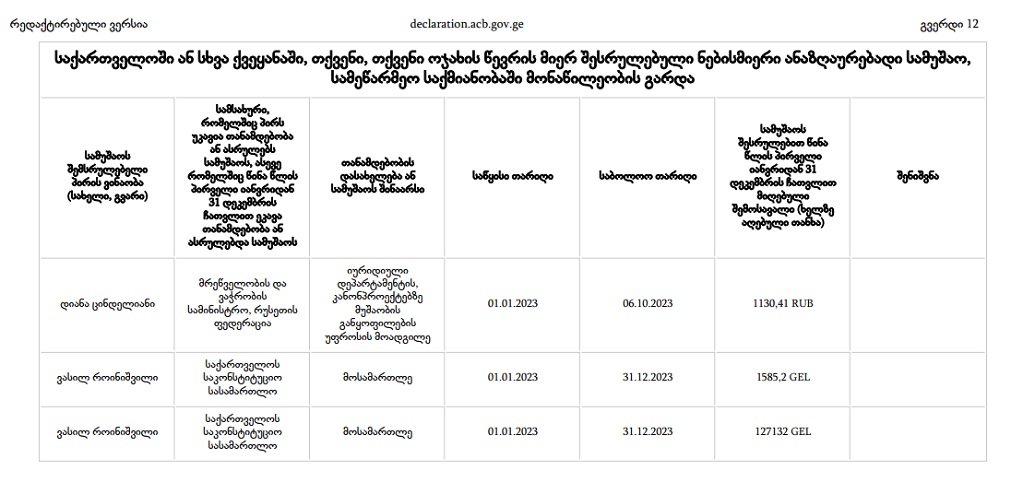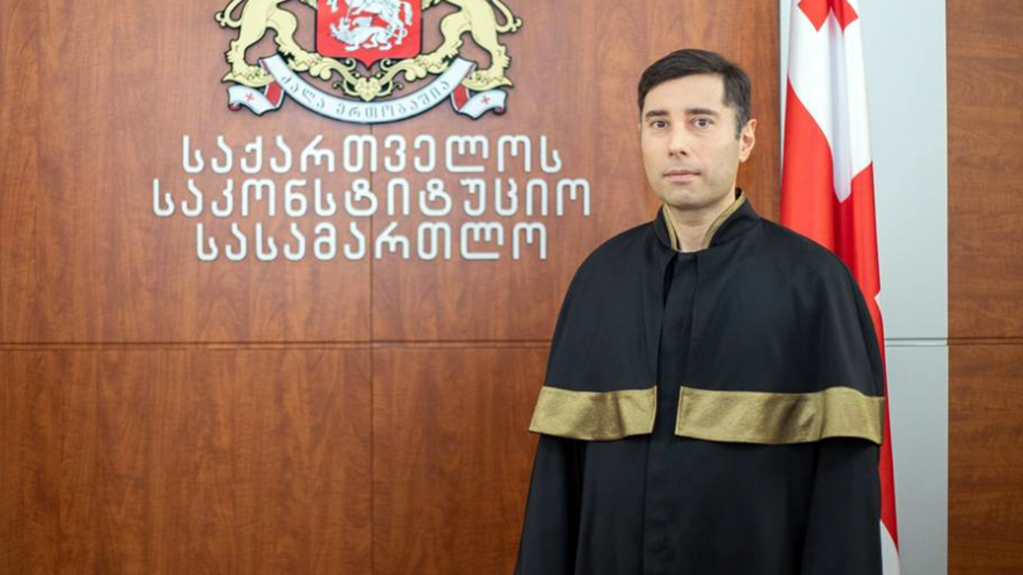Diana Tsindeliani, the wife of Vasil Roinishvili, a judge of the Constitutional Court of Georgia, was employed at the Ministry of Industry and Trade of the Russian Federation for many years.
News
The judge married last year and included information about his wife in the 2023 property declaration. Based on the document, Diana Tsindeliani, born in 1991 in Abkhazia, specifically in Gulripshi, served as the deputy head of the legal department at the Ministry of Industry and Trade of Russia from January to October 2023. The declaration notes that she received a salary of 1,130 rubles, which is approximately 35 GEL.

On the social network LinkedIn, Diana Tsindeliani's place of residence is listed as Moscow, and her work experience graph indicates that she has been employed at the aforementioned ministry since 2013, holding various positions. Diana Tsindeliani received her education at the State University of Justice of Russia.

Vasil Roinishvili was appointed as a member of the Constitutional Court of Georgia in 2020. He currently serves as the deputy chairman of the court and the chairman of the first panel.
121 non-governmental and media organizations are demanding the annulment of the Russian Law on so-called Foreign Agents in the Constitutional Court, along with the suspension of its unconstitutional norms until a final decision is reached. President Salome Zourabichvili of Georgia has also filed an appeal with the Constitutional Court against the Russian Law. The President contends that the law, enacted by Georgian Dream, contradicts Article 78 of the Constitution of Georgia, which pertains to integration into European and Euro-Atlantic structures, and therefore, should be repealed.















